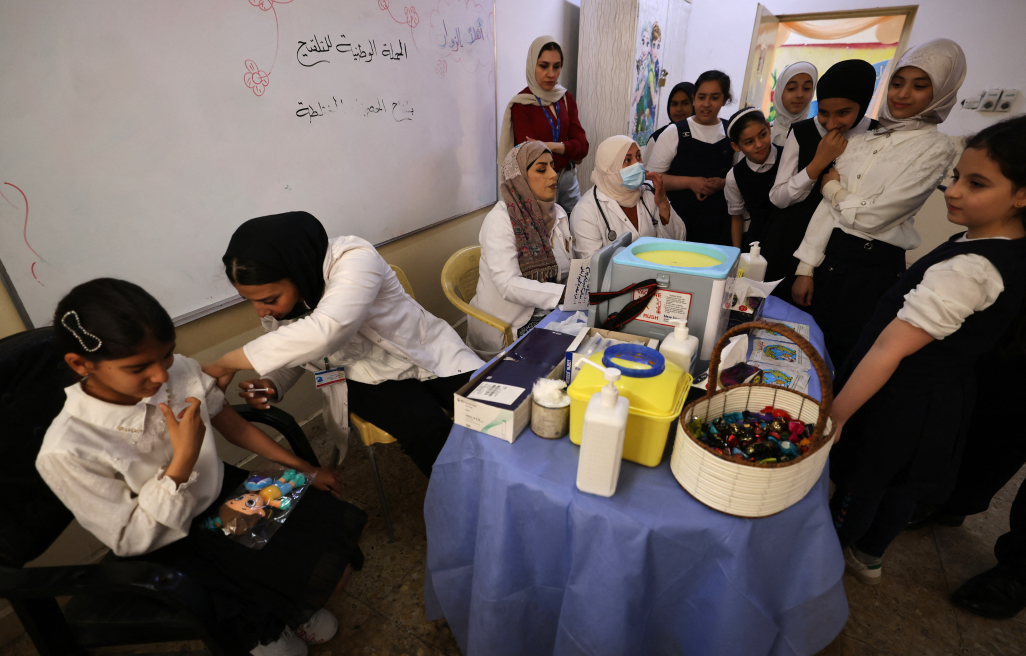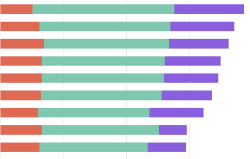R&D-based pharma companies
Foundation's new report narrows in on critical gaps in diabetes care faced by children and young people – identifying opportunities for pharma to scale access
Foundation's new report reveals what pharma companies can do to ensure their products reach underserved populations
R&D-based pharma companies: a powerful ally for achieving healthcare equity
Billions of people living in low- and middle-income countries are unable to access the medicines they need. Supply chains are often fragmented or disrupted, making it impossible to deliver and store pharmaceuticals while also safeguarding their quality. Even where medicines are available, they may be unaffordable for healthcare providers and patients in low-resource settings. Meanwhile, pharmaceutical products are typically developed to target more lucrative markets and, as a result, are often poorly matched to the needs of low- and middle-income countries.
Pharmaceutical companies, as the innovators, developers, manufacturers and distributors of essential medicines, have a key role to play in ensuring that vital health products reach all parts of the globe. This also makes them important partners for advancing universal health coverage, boosting immunisation rates and tackling antimicrobial resistance.
The past two decades have seen progress, most notably in R&D and in how access issues are viewed by R&D-based pharma companies. However, the pharmaceutical industry as a whole is still focused on too few countries and too few diseases. There is still much ground to cover in order to expand drug access to underserved parts of the world.
Nonetheless, each positive step taken by a major pharmaceutical company sends ripples of change through the global healthcare ecosystem. In areas such as maternal and child health, antimicrobial resistance, noncommunicable diseases and recently COVID-19, commitments made by a few players have had a snowball effect, leading to matching pledges and actions by others.
Changing business practices to transform lives
Pharmaceutical companies have a duty to consider how their products can be made available worldwide, and, as influential members of the global community, to collaborate on the development of strong healthcare systems. For the companies themselves, improving access to medicine creates new routes to market, not only transforming lives but also unleashing untapped revenue streams.
There are three key ways in which R&D-based pharma companies can take action to expand access to medicine in low- and middle-income countries:
Increase and sustain R&D investment
Engage in R&D that responds to global health priorities and includes access planning at an early stage of developmentExpand and strengthen supply of new and existing products in low- and middle-income countries
Register products widely and ensure sustained availability for a wider range of local populations, helping to work towards universal health coverage
Embrace access in low- and middle-income countries as part of core business
Recast access as a matter of business strategy rather than philanthropy, and recognise low- and middle-income countries as important markets for growth
While pharmaceutical companies have the power to bring about transformative change, they are not the only players with the means to make a difference. In particular, investors in pharmaceutical companies can bring their considerable influence to bear for the greater good.
How we drive the uptake of scalable solutions
At the Access to Medicine Foundation, we work to stimulate and guide pharmaceutical companies to improve access to medicine for the world’s most vulnerable people. Over the last two decades, we have demonstrated the power of our model for change to move R&D-based pharma companies on issues of global healthcare equity.
We examine what actions pharmaceutical companies are taking to improve access to medicine and make our findings freely and publicly available. Our Access to Medicine Index, published every two years since 2008, evaluates 20 of the world’s largest pharmaceutical companies based on governance of access, research & development and product delivery. We regularly publish research papers that analyse how pharmaceutical companies address key international priorities. Using our insights, companies and stakeholders can propagate best practices and identify where more needs to be done.
“I’ve been impressed by the Access to Medicine Index. It presents well-balanced stakeholder views on good practices for the pharmaceutical industry and it provides clear standards against which the performance of individual companies can be judged.”
To help catalyse change, we engage with pharmaceutical companies directly. We undertake change-making activities within companies, from regular interactions with top executives to town hall meetings for hundreds of employees. Through independent workshops and roundtable discussions, we provide company access teams with a forum to learn from each other’s successes and challenges. In addition, we help R&D-based pharma companies to reach more people in low- and middle-income countries by sharing expertise on how to navigate these new markets.
As concerns over environmental, social and governance (ESG) issues grow across all industry sectors, more and more investors are actively pushing for pharmaceutical companies to demonstrate a truly sustainable profile. Our systematic analyses offer pharma companies a valuable framework for designing and improving their access strategies, while also facilitating constructive communication between investors and boards.
We also work with investors directly, helping them to engage pharma companies through roundtable discussions, research launches, collective calls to action and collaborative engagements. We support investors in making investment decisions, providing insights based on independent and reliable evidence.
Bringing about large-scale change in the pharma industry is no small challenge – but each positive step has the potential for huge impact.


